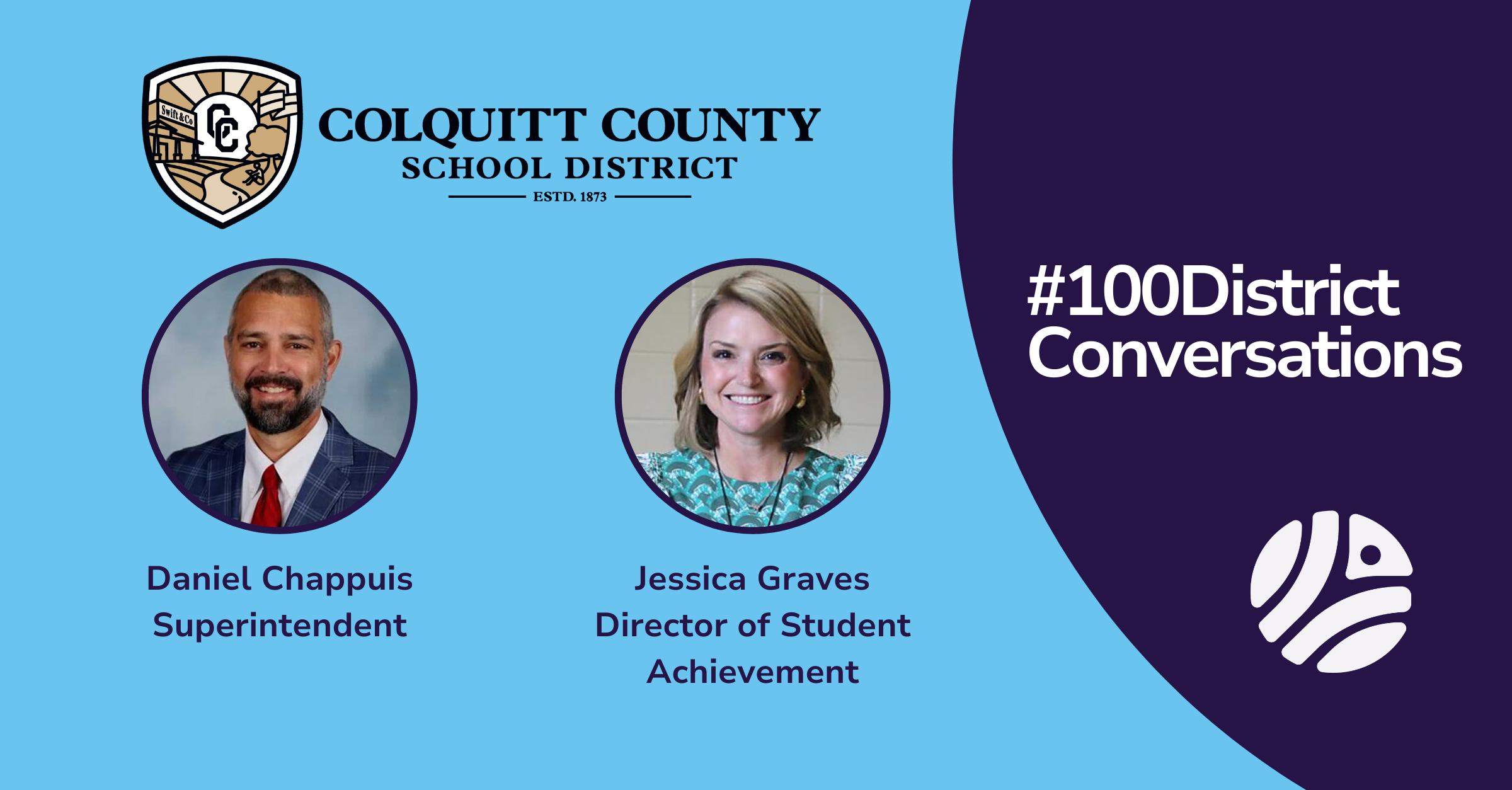#62 Daniel Chappuis & Jessica Graves

I found out about Colquitt County School District's work in a recent AASA article, “High School Literacy: It’s Not Too Late”. The article got me excited for conversation #62 with Superintendent, Daniel Chappuis and Director of Student Achievement, Jessica Graves about their strategy and change management approach to high school reading intervention.
"We must be willing to disrupt comfortable patterns to serve our students better. Professional learning isn't just about new strategies — it's about fundamentally shifting how we see our collective responsibility for student success. Sometimes the most high-impact changes start with honest conversations about what students really need. A few years ago, as a principal and assistant principal, we were staring at data that told a hard truth: our high schoolers weren't failing biology because of poor science instruction. They were struggling because they couldn't access the content through reading. That realization was the breakthrough we needed to stop treating reading as just an English department issue.
We were spending a lot of money on resources that weren’t the right inputs and we weren’t going anywhere. So, we began using MetaMetrics data based on Lexile levels to streamline the work for teachers and identify students who needed support. Literacy became the rallying cry of the school. We celebrated literacy growth frequently during the school year to recognize students and staff.
We built a comprehensive reading intervention model that qualified students for English credit toward graduation, addressing critical literacy gaps through explicit instruction.
The leadership piece was crucial. We used Patrick Lencioni's "Working Genius" Framework self-assessment to understand how our team operated. This helped ensure everyone had a role they found energizing. For example, with her geniuses of invention and galvanizing, it was comfortable for Jessica to dive right in and work side by side with our guidance team to strategically build student course schedules without sacrificing the electives they valued. Her approach was collaborative: 'Here's the students. Here's the class they need. Here's how we can do this.'
We scripted conversations and engaged everyone, including athletics coaches, to provide different lenses on the student experience and speak about Lexile levels as a crucial measure of success. This team approach helped students buy into the process rather than feeling punished by it. Students started owning their reading growth in ways we'd never seen before. We introduced goal-setting frameworks, social emotional learning supports, and conferencing that helped students see this work as empowerment, not remediation.
Most importantly, we had vulnerable conversations with families. When we explained this might be their child's last chance to build essential literacy skills before high school graduation, not a single parent hesitated to support the program."
If you're a district leader or know of a district leader who should be featured in the #100DistrictConversations initiative, please use this nomination form.
